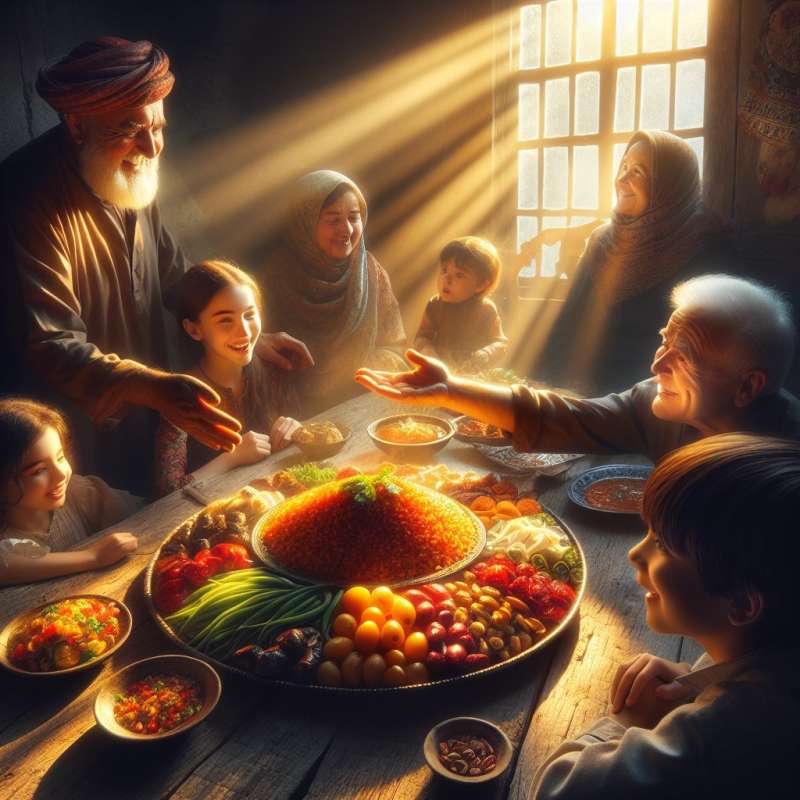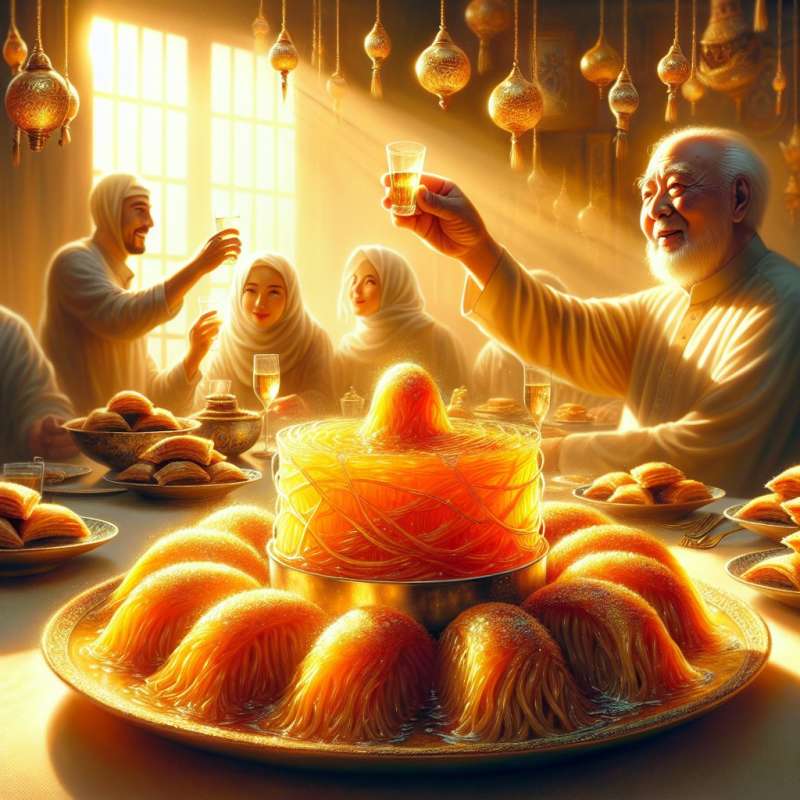
Exploring Arabic Flavors
Arabic cuisine goes beyond hummus and kebabs. It's a fusion of centuries-old spice trails. Ingredients like saffron, mint, and za'atar define its rich palette, making each dish a tapestry of historical and regional influences.
Communal Meals Tradition
Eating in Arabic culture is a communal affair, often shared from a single large platter. Phrases like 'Tafaddalou' meaning 'Please join' showcase the hospitality that is central to Arabic dining experiences.
Coffee Etiquette
Arabic coffee, or 'qahwa', isn't just a drink; it's a ceremony. It represents hospitality and trust. Refusing it can be impolite. Always accept with your right hand as a mark of respect.
The Concept of Halal
Halal isn't just a dietary law but a principle that ensures the well-being of animals and ethical eating. The phrase 'halal' signifies permissible foods, essential in guiding dietary choices and food preparation.
Ramadan Fasting Phrases
During Ramadan, 'Suhoor' and 'Iftar' are key terms. 'Suhoor' is the meal before dawn, and 'Iftar' breaks the fast at sunset. Sharing wishes like 'Ramadan Kareem' is common to honor this time.
Generosity in Portions
Serving generous portions is a sign of hospitality in Arabic culture. 'Kul Hadi' means 'eat calmly', often said to guests to encourage them to savor their meal without rush, reflecting the generous spirit.
Sweets and Celebrations
Arabic desserts are not just treats; they're symbols of celebration. 'Knafeh' and 'Baklava' are staples at festive occasions. Expressing appreciation, 'Lazeez!' means 'Delicious!' and is often exclaimed with joy.Historic Coffee Origins
The world's first coffeehouse opened in Mecca in the early 16th century, serving as a social hub long before modern cafes.
What defines Arabic cuisine's palette?
Only hummus and kebabs
Saffron, mint, and za'atar
Mostly sweet desserts
Company